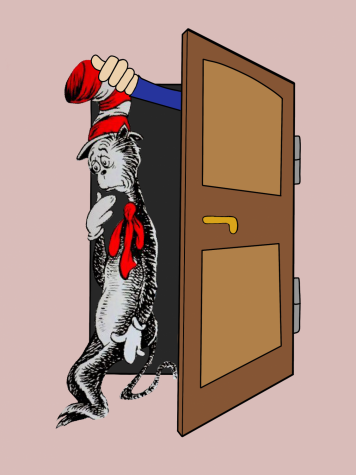Six Dr. Seuss books recalled due to the portrayal of racists stereotypes
April 13, 2021

On March 2, 2021, Dr. Seuss’ birthday and Read Across America Day, Dr. Seuss Enterprise decided to discontinue the publication and recalled six Dr. Seuss books which contained images portraying racial stereotypes. Dr. Seuss Enterprise released a statement concerning the books saying, “These books portray people in ways that are hurtful and wrong.”
And to think I saw it on Mulberry Street was Dr. Seuss’ first book he published. It is about a boy who goes for a walk and pretends he is in an imaginary parade on a made up Mulberry Street. The book contains racially stereotypical images of Asians. There is an illustration of a young Chinese boy, who is running with chopsticks, mocking Asian culture. The next book, If I ran the Zoo, a boy visits a zoo and thinks that the animals there are not good enough. Throughout the book, he comes up with exotic creatures that he would have in his zoo. There is a presence of stereotypes against Africans. The Africans in the book are depicted with larger bodies and thick lips.
Mcelligot’s Pool uses the word “Eskimo” to describe fish who, in the book, swam from the North Pole to Mceligot’s pool. Eskimo is a word in Old English and can be considered offensive in Canadian English. The Cat’s Quizzer has an image of a yellow person wearing a coolie hat. The image has the caption “How old do you have to be to be a Japanese.”
Scrambled Egg Super is about a little boy who brags he is such a good cook and uses eggs from exotic birds to make scrambled eggs. The book has a picture of birds wearing Inuit clothing, and is stereotypical to the Inuit tribe.
On Beyond Zebra is a book of the alphabet, with some made up letters. The book illustrates a figure, “Nazzim of Bazzim,” who is portrayed as Arab and is riding an animal similar to a camel called a “Spazzim’.” This book was the last to be recalled.
All these books were published between the years 1937-1995.
There were varying reactions to the announcement of the recall. Ebony Thomas, a literature professor at the University of Pennsylvania, said in an interview with NBC, “Dr. Seuss was shaped by a completely immersive white supremacist culture.” Thomas also said, “In Dr. Seuss’ books, we have a kind of sensibility which is oriented toward centering the white child and decentering everyone else.”
Ben Shapiro, a conservative political commentator took to Twitter to express his concerns about the recall. He tweeted, “The media Leftists have now hit upon a new narrative: cancel culture doesn’t exist. It doesn’t exist because book burnings are not ACKSHUALLY book burnings. They’re just “cultural change.” But what if that “cultural change” involves book burnings, as most cultural revolutions do?” He blamed the left and “cancel culture” for a decision made by Dr. Seuss Enterprise.


